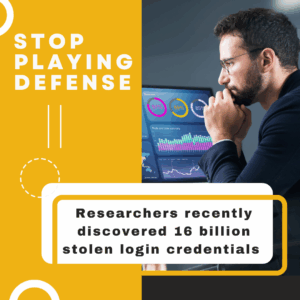
As technology rapidly advances, artificial intelligence (AI) is at the forefront, changing how we live with personalized recommendations and virtual assistants. However, as AI becomes more powerful, the risks of its misuse also grow. Balancing the benefits of AI with the need to protect our privacy is becoming harder. Now more than ever, we need to focus on security.
The Risks of AI and Sharing Information Online
While AI can significantly improve our lives, it also comes with serious risks. I recently saw a video that showed these dangers clearly, but it’s too disturbing to share. The video’s main point is that the personal information we post online can be easily misused. AI can analyze and combine data from different sources, turning harmless posts into tools for identity theft, financial fraud, and emotional harm.
As AI gets better, it can create fake but very realistic images, videos, and voices. These deepfakes can be used by criminals to impersonate others. For example, a simple family photo posted online could provide enough data for an AI to create a digital clone of you, fooling banks, employers, or even loved ones. Imagine getting a voicemail from someone sounding exactly like your child, asking for money. Even experienced security experts might not think twice before helping their child.
The emotional impact of AI misuse can be devastating. Cyberbullying and harassment can worsen when AI is used to create fake and humiliating content. For example, the video showed a child’s photo being altered to create distressing images, leading to severe emotional trauma and bullying.
Every piece of data we share online contributes to a digital footprint that can be tracked and analyzed. As AI becomes more skilled at connecting different pieces of information, keeping our privacy intact becomes harder. Innocent posts can lead to detailed profiles that expose us to threats like targeted ads and surveillance. For instance, posting about going to church every Sunday can let criminals know when you’re not home, posing a security risk.
Steps to Protect Your Privacy Online
Given these dangers, it’s essential to prioritize security. Here are some steps to protect your privacy online:
- Limit Sharing: Be careful about what you share online. Avoid posting sensitive information like addresses, birthdays, regular events, and financial details.
- Privacy Settings: Regularly check and update the privacy settings on your social media accounts and devices. Make sure only trusted people can see your personal information.
- Stay Informed: Keep up with the latest AI technologies and their risks. Educate your family and friends about the importance of digital privacy.
- Use Strong Security: Use strong passwords, two-factor authentication, and encrypted communication to protect your data from unauthorized access.
- Support Regulations: Advocate for laws and policies that protect individuals from AI misuse and ensure companies prioritize user privacy.
This discussion is meant to inform, not scare you. As we live in a world increasingly dependent on AI, protecting our privacy is more important than ever. By taking proactive steps to secure our digital lives, we can enjoy the benefits of AI while staying safe from its potential dangers. Let’s focus on security to protect our identities and well-being in this evolving technological landscape.



